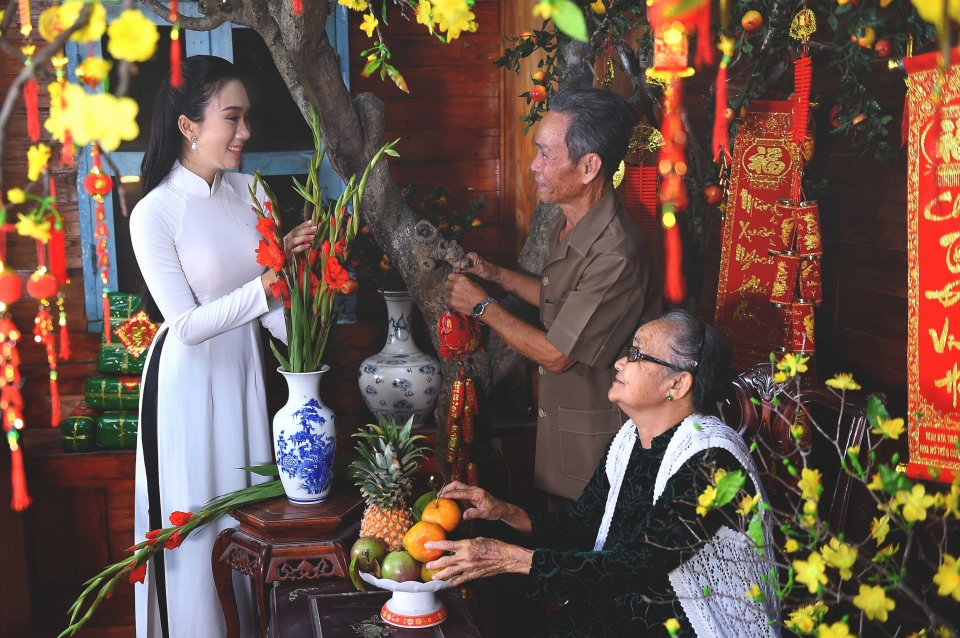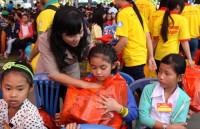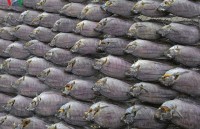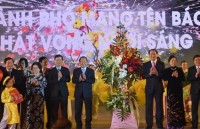
Here comes Tết, the Lunar New Year
Latest
| TIN LIÊN QUAN | |
| My village | |
| The traditional meals in Vietnam | |
In spite of its impressive credentials, the Gregorian New Year has not been generally accepted in Vietnam, in the countryside in particular. Our people pay it a courteous homage but reserve their heart and soul for the traditional Tết.
Tết falls sometime between the last ten days of January and the middle part of February.
For a nation of farmers attached to the land for millennia, it has always been a festival marking the communion of man with nature. In the flow of seasons, it is a pause during which both the field and the tiller enjoy some rest after twelve months of labour. Quan Trung, the greatest peasant leader of Vietnamese history, allowed his army to celebrate Tet a few days in advance before launching a decisive attack on the Manchu invading fore encamped in Ha Noi. In this period of universal renewal, the Vietnamese man feels surging within himself a fountain of Youth.
 |
| Tết is also a family and a communal festival. (Photo: Minh Hà) |
That feeling explains many fine customs: in the New Year, all actions should be pure and beautiful for it may be an omen foretelling events in the twelve months that follow. For three days, one takes extra care not to show anger, not to be rude to people; the most nagging mother-in-law will make peace with her daughter-in-law; a quarrelling couple will smile pleasantly at each other; the new world should be the best of worlds. When the holiday ends, people will resume their activities in a new spirit following so-called opening rituals in which the ploughman will open the first furrow, the official apply his seal to the first document, the scholar trace the first character with his pen brush, the trader receive his first customer, etc.
Tết is also a family and a communal festival. In the old days at Tết, farmers seldom ventured out of the bamboo hedge surrounding their village; people who could not return home for Tết suffered acute nostalgia. As a result, all members of the extended family tried to spend the holiday (the idiom used was "to eat Tết") together under the same roof. Children vowed to be well behaved and were given gifts often in cash wrapped in red paper. Friends and relatives exchanged wishes expressed in high sounding words.
The manes of ancestors are invited to return to this world to share in the rejoicing. Several times a day, joss sticks are lighted on the family altar and offerings made of food, fresh water, flowers and betel. Family graves are visited, generally, before the end of the "outgoing" year; fences are mended and the little burial mounds tidied up.
The Vietnamese Tết is an occasion for an entire people to share in common an ideal of peace, concord and mutual love. I know of no people's celebration with a moẻ humanistic character. Perhaps my friend, the American sociologist G.Katsiaficas, a disciple of Marcuse, could take it as an example illustrating his theory of the "pulsation of life" (Eros) uniting all men in opposition to the "pulsation of death" (Thanatos).
Huu Ngoc
 | Programme to bring Tet to disadvantaged children The 11th “Spring for children” programme will be held at the Ha Noi Opera House on January 21 and broadcast live on VTV2 of the ... |
 | Ca Mau's fishing villages prepare for Tet One month ahead of the lunar New Year Festival or Tet, fishing villages in Ca Mau are busy preparing their special product for Tet market: ... |
 | Programme welcomes back Overseas Vietnamese for Tet The 2018 ‘Xuan Que Huong’ (Homeland Spring) programme will be held at the Vietnam National Conventional Centre in Ha Noi on February 7, 2018 as ... |

















